Filter News
Area of Research
News Topics
- (-) Decarbonization (15)
- 3-D Printing/Advanced Manufacturing (2)
- Artificial Intelligence (5)
- Big Data (7)
- Bioenergy (26)
- Biology (42)
- Biomedical (9)
- Biotechnology (6)
- Chemical Sciences (3)
- Clean Water (8)
- Climate Change (23)
- Composites (1)
- Computer Science (11)
- Coronavirus (5)
- Energy Storage (2)
- Environment (57)
- Exascale Computing (4)
- Frontier (3)
- High-Performance Computing (12)
- Hydropower (5)
- Machine Learning (5)
- Materials (1)
- Materials Science (2)
- Mathematics (3)
- Mercury (6)
- Microscopy (7)
- Nanotechnology (2)
- National Security (2)
- Net Zero (1)
- Neutron Science (1)
- Physics (1)
- Polymers (1)
- Renewable Energy (1)
- Security (1)
- Simulation (9)
- Summit (7)
- Sustainable Energy (17)
Media Contacts
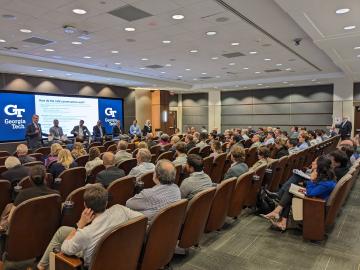
ORNL's Climate Change Science Institute and the Georgia Institute of Technology hosted a Southeast Decarbonization Workshop in November that drew scientists and representatives from government, industry, non-profits and other organizations to

Scientists at ORNL used their knowledge of complex ecosystem processes, energy systems, human dynamics, computational science and Earth-scale modeling to inform the nation’s latest National Climate Assessment, which draws attention to vulnerabilities and resilience opportunities in every region of the country.
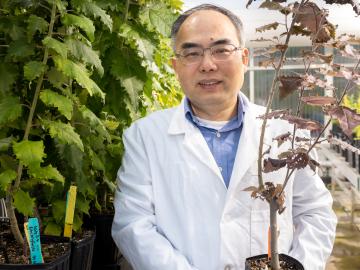
Scientist Xiaohan Yang’s research at the Department of Energy’s Oak Ridge National Laboratory focuses on transforming plants to make them better sources of renewable energy and carbon storage.
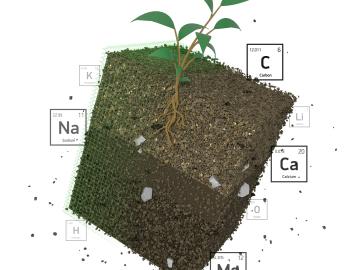
Oak Ridge National Laboratory researchers recently demonstrated use of a laser-based analytical method to accelerate understanding of critical plant and soil properties that affect bioenergy plant growth and soil carbon storage.
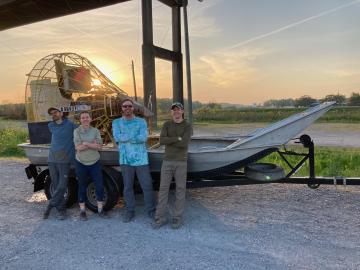
As a biogeochemist at ORNL, Matthew Berens studies how carbon, nutrients and minerals move through water and soil. In this firsthand account, Berens describes recent fieldwork in Louisiana with colleagues.
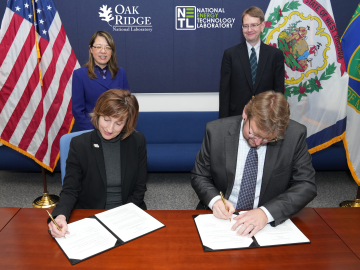
ORNL is teaming with the National Energy Technology Laboratory to jointly explore a range of technology innovations for carbon management and strategies for economic development and sustainable energy transitions in the Appalachian region.
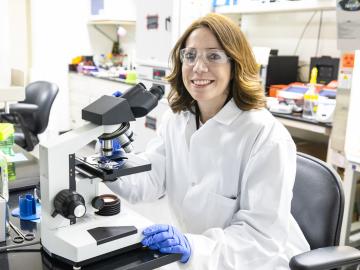
Joanna Tannous has found the perfect organism to study to satisfy her deeply curious nature, her skills in biochemistry and genetics, and a drive to create solutions for a better world. The organism is a poorly understood life form that greatly influences its environment and is unique enough to deserve its own biological kingdom: fungi.
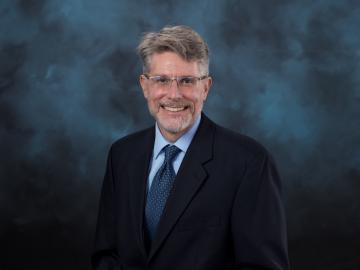
ORNL appointed Peter Thornton as director of its Climate Change Science Institute, or CCSI, effective November 1, 2022.
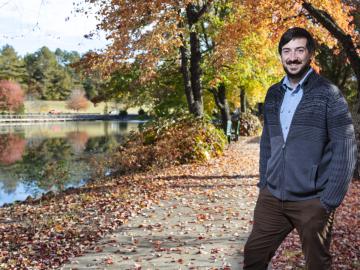
Matthew Craig grew up eagerly exploring the forest patches and knee-high waterfalls just beyond his backyard in central Illinois’ corn belt. Today, that natural curiosity and the expertise he’s cultivated in biogeochemistry and ecology are focused on how carbon cycles in and out of soils, a process that can have tremendous impact on the Earth’s climate.
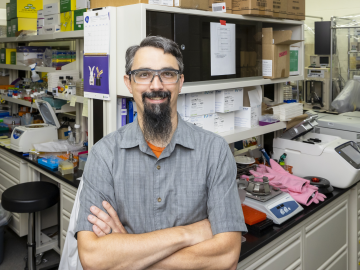
Scientists working on a solution for plastic waste have developed a two-step chemical and biological process to break down and upcycle mixed plastics into valuable bioproducts.




